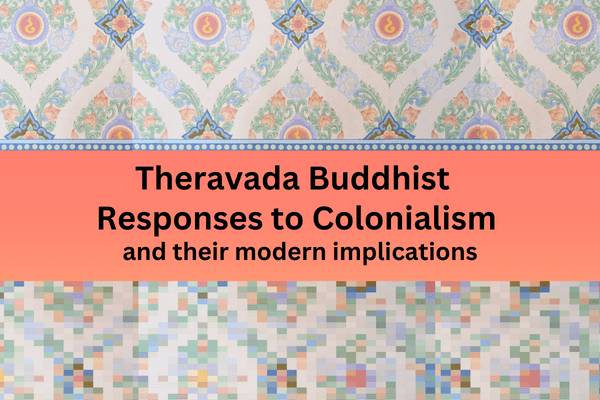
Theravada Buddhist responses to colonialism and their modern implications: Yin-Cheng Distinguished Lecture in Buddhism
Balliol College, University of Oxford Kate Crosby
April 3, 2023 · 7:00 pm—8:30 pm · 219 Aaron Burr Hall
Center for Culture, Society and Religion

The warfare, disease and disruption to the status quo that came with European colonialism to the countries of Theravada Buddhism seemed to fulfill ancient predictions of the calamities that would attend the decline of the Buddhist religion. In their responses to the practical and conceptual challenges of colonialism, Buddhists took inspiration from the canonical and commentarial texts that contained both such predictions and potential counter measures. These texts thus inspired both adaptive and conservative responses aimed at preserving the Buddha’s teaching and maintaining the availability of spiritual progress. Despite finding inspiration in the same texts, the resulting forms of Buddhism have often taken markedly opposite directions, ranging from secularised and modernist approaches on the one hand, to the reactionary and fundamentalist approaches on the other. Examples of adaptive responses include modern Mindfulness, the dismissal or reinterpretation of traditional cosmology and rebirth from Theosophy onwards, and ‘common-sense’ interpretations of Buddhist ritual or monastic rules. In contrast, all of these types of response have been the subject of non-Dharma/non-Vinaya, or ‘heresy and malpractice’, trials in modern Myanmar, with defendants being found guilty for straying from the detailed teachings on these subjects found in the Pali canon, commentaries and Abhidhamma. This talk will illustrate the different directions taken to protect Buddhism from colonialism in different Theravada countries and the ramifications for both Theravada and global Buddhism today.
Kate Crosby joined the University of Oxford as the Numata Professor of Buddhist Studies in 2022. She had previously been Professor of Buddhist Studies at King’s College, London, following posts at the universities of Edinburgh, Lancaster, Cardiff and SOAS. She studied Sanskrit, Pali and Tibetan, South Asian religions and Buddhism at Oxford (MA and DPhil). She also studied at the universities of Hamburg and Kelaniya, as well as with traditional teachers in Pune, Varanasi and Kathmandu. She works on Sanskrit, Pali, and Pali-vernacular literature and on Theravada practice in the pre-modern and modern periods, including on the pre-modern meditation and its relationship to temporal technologies. She has conducted fieldwork in most countries with a substantial Theravada population. She was recently a member of the ICRC project on the Interface between Buddhism and International Humanitarian Law (the Law of War). Her publications include a translation and study of Śāntideva’s Bodhicaryāvatāra (with co-author Andrew Skilton, 1994); Mahābhārata: The Women and the Dead of Night (2009); Traditional Theravada and its Modern-Era Suppression (2013); Theravada Buddhism: Continuity, Identity, Diversity (2014); and Esoteric Theravada: The Story of the Forgotten Meditation Tradition of Southeast Asia (2020).
Alicia Turner will offer a response. She is Associate Professor of Humanities and Religious Studies at York University. Her research examines the intersections of religion, colonialism, secularism and nationalism in Southeast Asia, with a particular focus on Buddhism in Burma (Myanmar) over the past 150 years. Her first book Saving Buddhism: The Impermanence of Religion in Colonial Burma (Hawai’i 2014) explores the fluid nature of the concepts of sāsana, identity and religion through a study of Buddhist lay associations in colonial Burma. She recently published The Irish Buddhist (OUP 2020) with Laurence Cox and Brian Bocking, a biography of an Irish sailor and agitator turned Buddhist monk. Her current project is a book on the genealogy of religious difference and violence in Burma Myanmar.
This event is part of the Yin-Cheng Distinguished Lecture Series in Buddhist Studies.
Launched in September 2021, the Yin-Cheng Distinguished Lecture Series (印證佛學傑出學術系列講座) is a collaborative, multi-university partnership between Peking University, University of Oxford, University of Cambridge, Inalco (Institut national des langues et civilisations orientales), Princeton University, Harvard University, and the University of British Columbia.The Lecture Series is established in honor of Venerable Cheng-yen 證嚴, founder of Tzu Chi, and her mentor Yinshun 印順 (1906–2005), with the goal of promoting topics in Buddhist studies.
Free and open to the public. The webinar will also be live-streamed via YouTube with simultaneous English and Mandarin channels.















